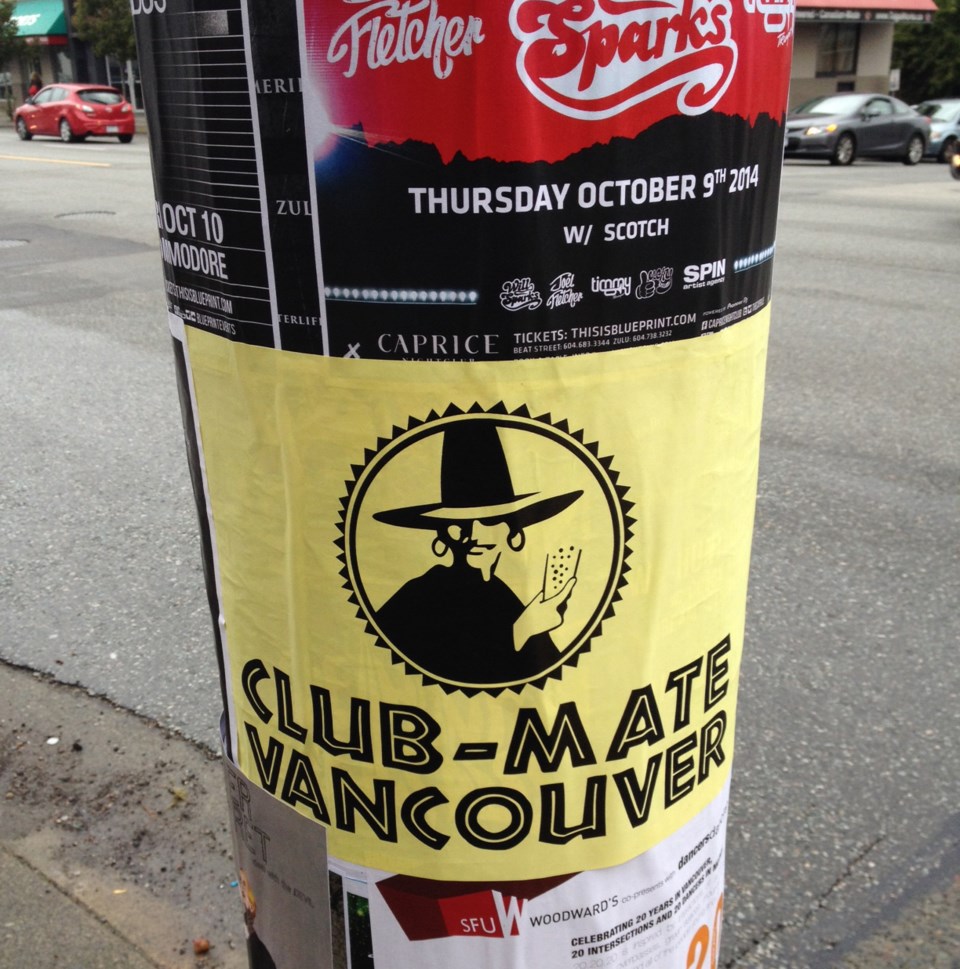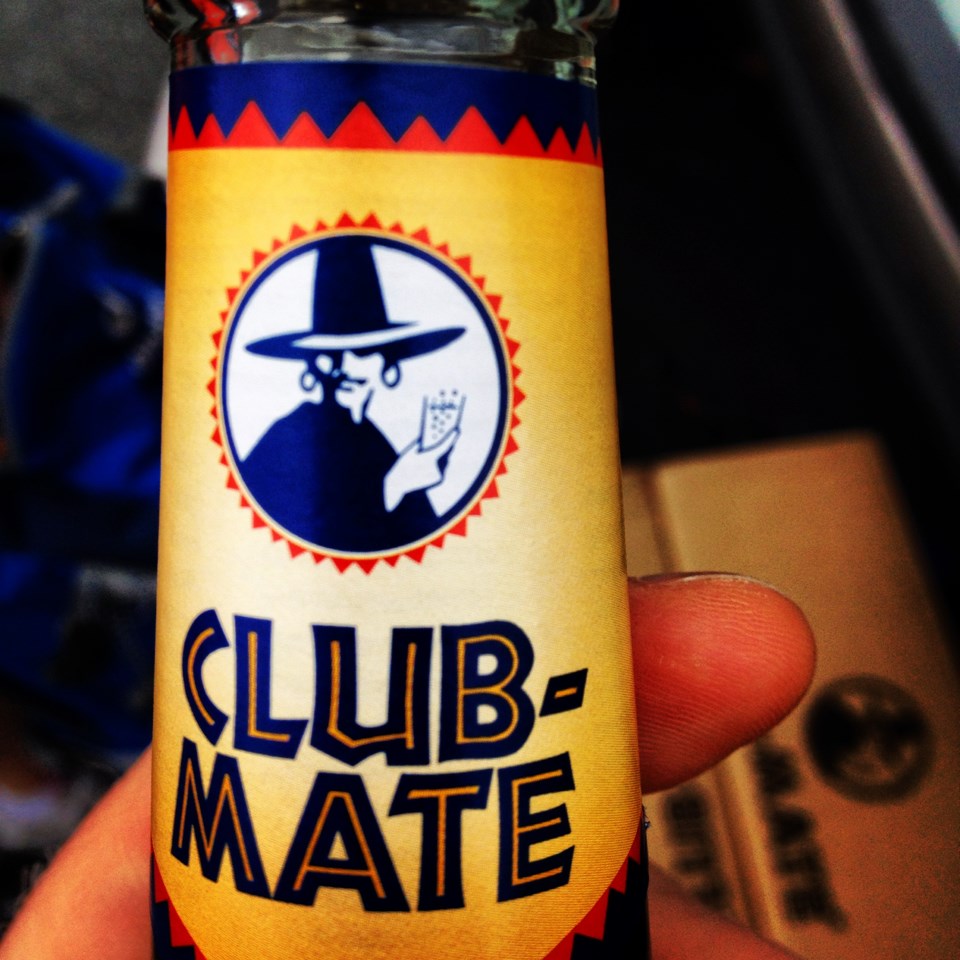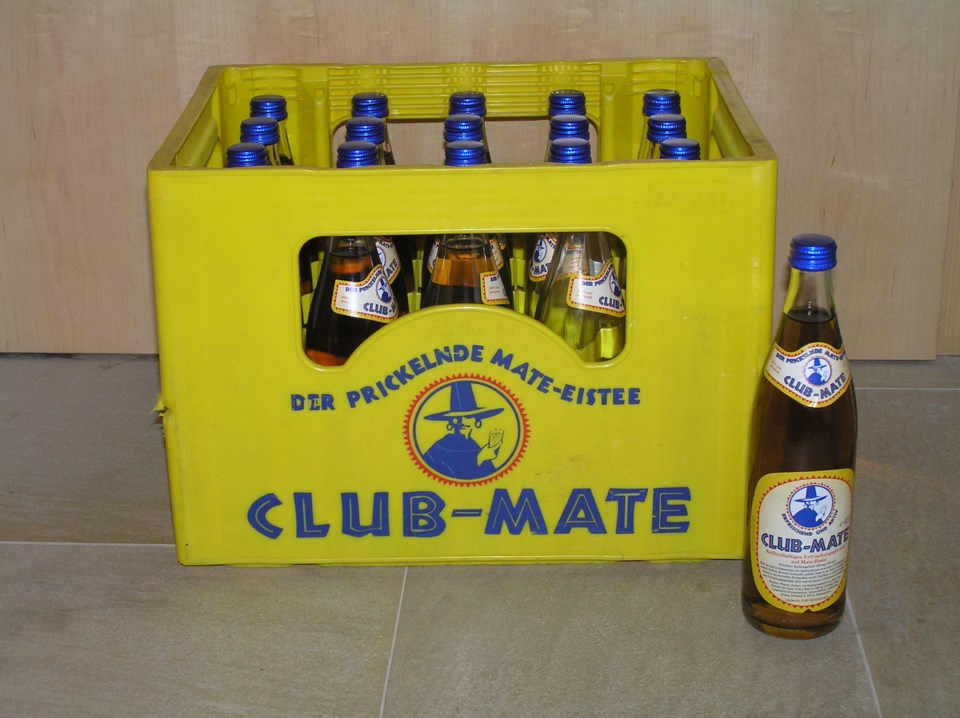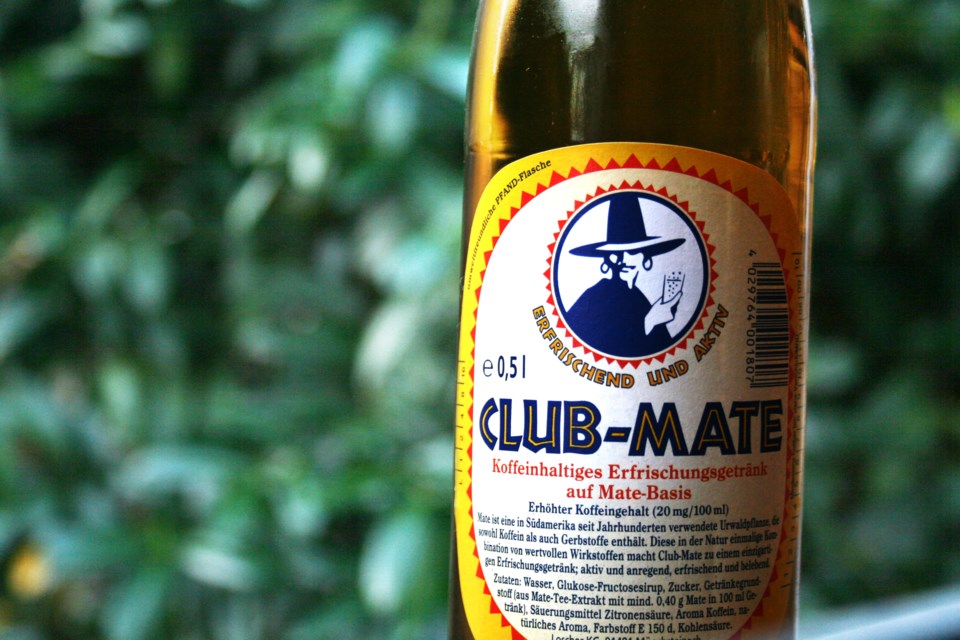In June, mysterious posters popped up around Â鶹´«Ă˝Ół»featuring an illustration of a man bearing a close resemblance to a Guy Fawkes mask, with a wide-brimmed hat, fizzy beverage in hand, and the words “Club-Mate Vancouver” below. Despite the cryptic name and guerilla-style marketing campaign, Club-Mate Â鶹´«Ă˝Ół»isn’t a new hipper-than-thou nightclub or online dating site for lovelorn golfers. It’s the local retailer for the cult favourite energy drink Club-Mate (pronounced “club mah-tay”). Â

Imported from Germany, and made from (a popular tea-like beverage from South America valued for its high caffeine and anti-oxidant properties), Club-Mate has been a favourite of Germany’s nocturnal hacker community and rave scene since the mid ’90s. The drink’s mascot, in fact, is supposed to represent a South American gaucho, or cowboy. Â

Mark Sommer first learned of the drink’s energizing charms after a friend brought him a few bottles from Germany. He was immediately hooked and started researching where he could find the soft drink in Canada. While there was a Club-Mate Montreal and a distributor for Toronto, there was nothing out west, so Sommer used the expertise he acquired working in music management to get into the beverage distribution business and secure the Club-Mate retail rights for British Columbia. Since launching in June, Club-Mate is now distributed to 13 local retailers, including restaurants, nightclubs and speciality shops, with a concentration in Chinatown and Gastown. And individual customers can buy cases of the liquid gold directly from Sommer. Â
Club-Mate is an acquired taste, he admits, primarily due to yerba mate’s distinct grassy flavour. Or as one frequent imbiber bluntly described it in a : “The first time you drink it, it kind of tastes like horse urine filtered through hay.” To be fair, Club-Mate is closer to a carbonated, lightly sweetened green tea … with a hint of hay.

“I’ll drink one of these a day instead of two coffees. So the energy is real… And yerba mate seems to be pretty hot this year,” says Sommer, who adds that Club-Mate has made inroads into such discerning hotspots as Paris, New York City and Los Angeles. “It’s getting some of the hipster and clubster people interested, but then there’s the people who are just yerba mate fans.”
Unlike other pops and energy drinks, Club-Mate has a comparatively low sugar and calorie count (5Â g/100Â ml and 20Â cal/100 ml, respectively), and those under its spell claim the drink delivers a mellower, longer-lasting caffeine high than Red Bull.
Adding to its allure, Club-Mate’s family-run manufacturer, the Loscher Brewery, spends no money on promotion, relying solely on word of mouth, the fever dreams of German expats and, now, social media. Â
“The way information spreads nowadays, I don’t think Club-Mate could have spread in North America in the 1990s without social media… It’s really been the modern social media movement of the past five years that’s helped it get out of Germany,” says Sommer, who not only relies on ambiguous posters to spread the word, but Facebook, Twitter, Instagram and a stylish .
Still it’s never going to be for everyone, he says. For starters, the smaller production and distance travelled will always make Club-Mate more expensive than your Red Bulls, Rockstars and Monster energy drinks — a 330ml bottle of Club-Mate retails for $4.25 or often more. Then of course, there’s the unique taste, something cheekily acknowledged in Club-Mate’s motto “Man gewöhnt sich daran,” which roughly translates as “One gets used to it.”



